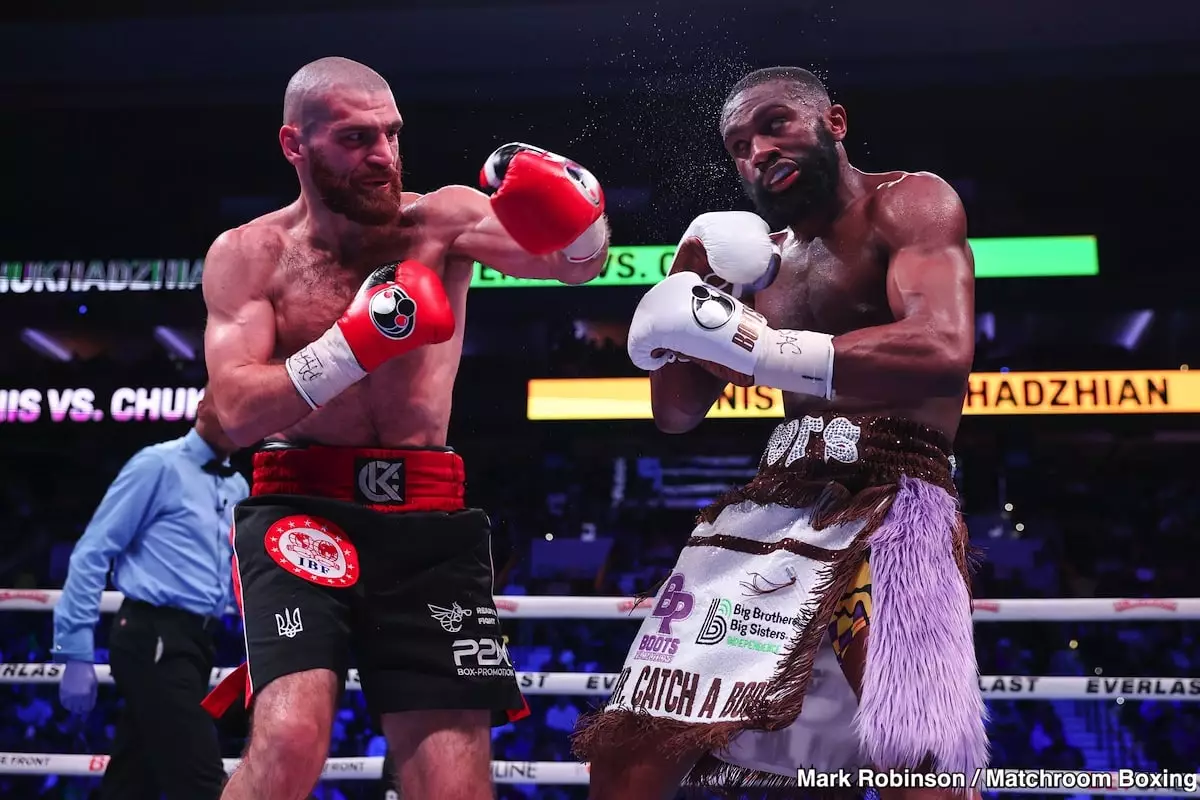In the world of boxing, criticism can be both constructive and destructive, and former IBF welterweight champion Shawn Porter recently stepped into the spotlight to deliver a harsh assessment of Jaron ‘Boots’ Ennis. Porter’s commentary centers around Ennis’ performances, particularly after his lackluster rematch against Karen Chukhadzhian, which took place on November 9th. Declaring Ennis “overrated,” Porter argues that it is time for the young fighter to consider a move up to the 154-pound division. However, this assertion begs more questions than it answers, especially regarding Ennis’ potential and the competitive landscape in both weight classes.
Porter’s suggestion that Ennis should transition to the 154-pound division stems from frustrations over what he perceives as a stagnation in Ennis’ career trajectory. The welterweight division, once a hotbed of talent, has become sparsely populated with fighters who can consistently challenge for titles. Porter argues that Ennis has not faced the caliber of competition that would warrant his current ranking, and his only notable fights over the past two years—one in 2022 and two in 2023—do not reflect the extensive training and preparation he undergoes.
However, the notion that moving to 154 would automatically enhance Ennis’s career or provide better opportunities is debatable. The junior middleweight division is densely packed with formidable opponents, including champions and rising stars like Terence Crawford, Vergil Ortiz Jr., and Tim Tszyu. Ennis would face a significant risk of being exposed against these fighters, potentially damaging his reputation more severely than his recent showing against Chukhadzhian.
In analyzing Ennis’ performance against Chukhadzhian, it’s clear that Porter’s concerns are not without merit. Ennis celebrated his victory, yet, many spectators, including his own fans, expressed disappointment—a stark indicator that expectations were not met. The lackluster outcome not only tarnishes Ennis’ standing but also raises questions about his fighting acumen and ability to adapt against skilled opponents.
Porter’s observations suggest that Ennis perhaps relied too heavily on his perceived physical advantages and power without fully developing other essential aspects of his boxing skillset. Chukhadzhian’s tactical discipline and accuracy demonstrated a glaring gap, leading to speculation about whether Ennis is genuinely ready for higher levels of competition. If Ennis did not perform well against Chukhadzhian, it poses significant doubts about how he might fare against the much tougher competition within the 154-pound division.
The potential repercussions of a move up in weight should not be underestimated. If Ennis decides to pursue a fight with the likes of Vergil Ortiz Jr. or Tim Tszyu, he could face a swift and harsh reality check. The precision and aggression exhibited by these fighters may highlight weaknesses that have thus far been masked by an abundance of mismatches against lesser opponents. With Ennis possessing an undefeated record of 33-0, his career direction hangs in a delicate balance; a poorly chosen fight could lead to his first loss and irreparably stall his progress.
Ennis is at a crossroads: He could choose to test himself against top contenders and risk immediate setbacks or linger in the welterweight division in pursuit of a more favorable matchup, which may not materialize. This dilemma illuminates broader issues regarding matchmaking and fighter development in the current boxing landscape.
Shawn Porter’s critique of Jaron ‘Boots’ Ennis provides a valuable perspective on the unpredictability of boxing careers. While the call for Ennis to move up to 154 pounds reflects a desire to see him face stringent challenges, it simultaneously raises essential questions about readiness and potential exposure. The landscape of boxing is filled with fierce fighters eager to capitalize on any perceived weaknesses, and Ennis must critically assess his next steps if he desires to silence critics and establish his legitimacy in the sport. Ultimately, how Ennis navigates this precarious situation will define his career for years to come.

